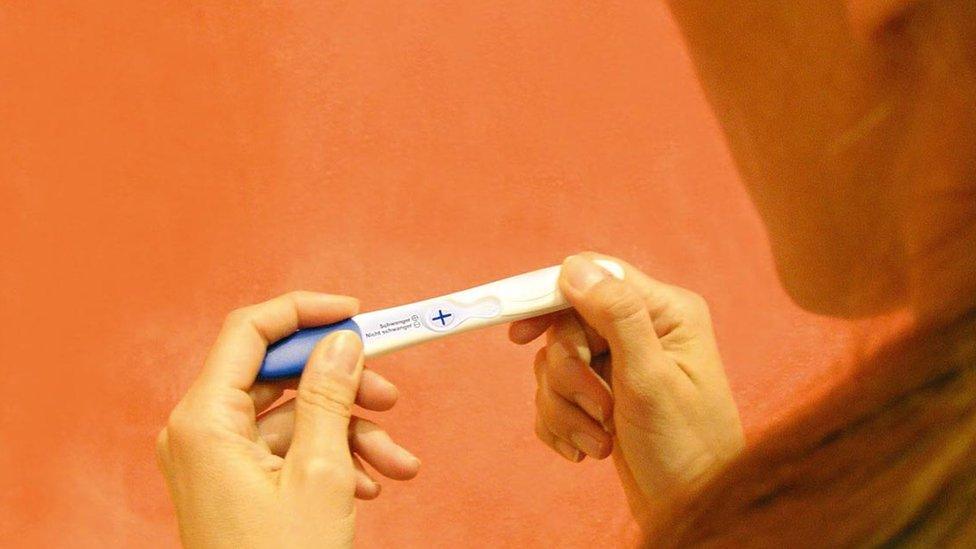Abortion laws are Victorian era, says grieving mum
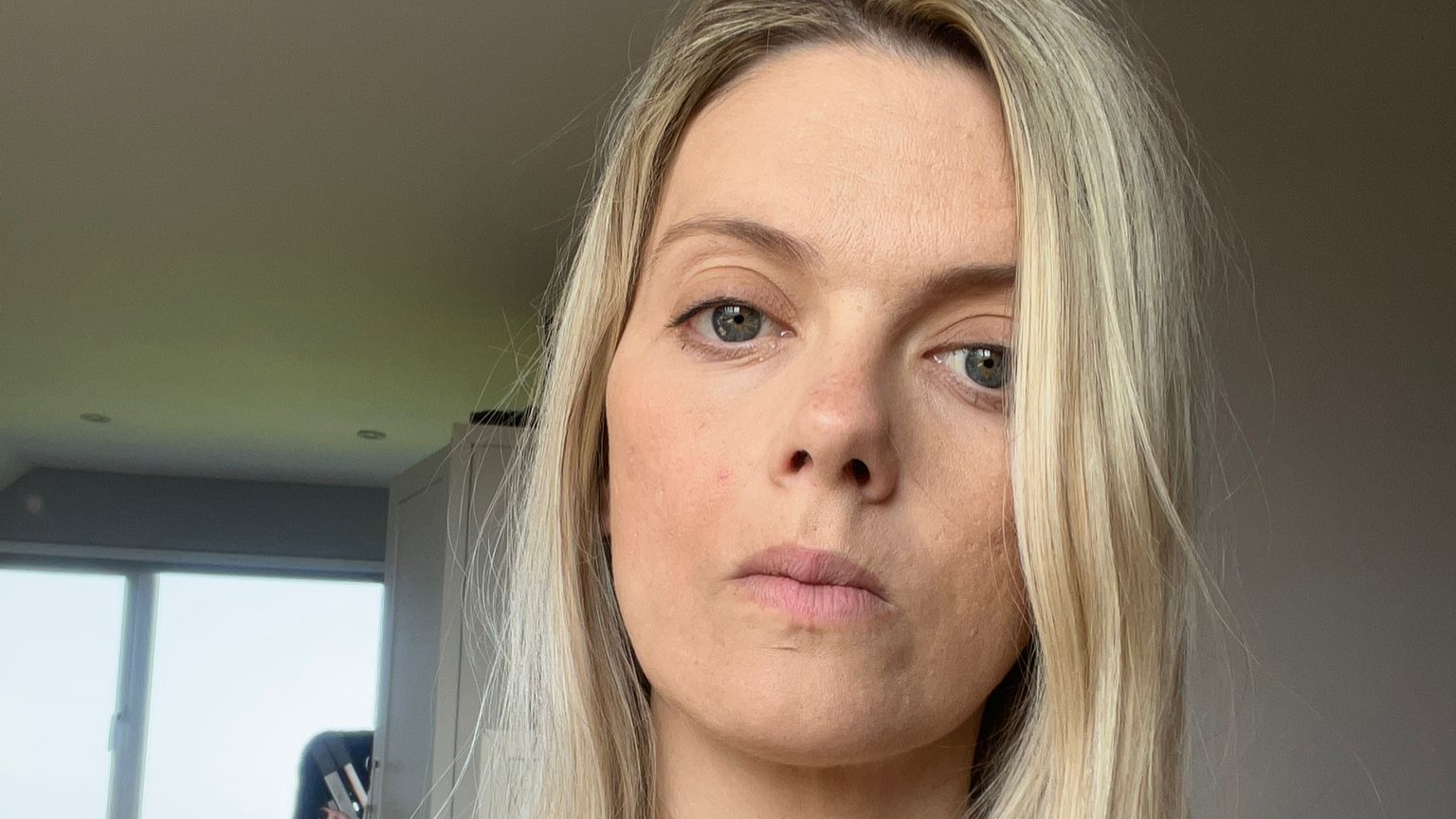
Elen Hughes says if she was investigated while grieving, it "might well have been the end of me"
- Published
Women's bodies are still controlled by "Victorian era" laws, a mum has said, after police issued new guidelines which allow officers to search grieving women for abortion drugs.
Elen Hughes, from the Llŷn Peninsula in Gwynedd, whose baby was stillborn, called the guidance horrifying, external.
They include allowing searches of mothers' mobile phones if a baby dies unexpectedly in the womb.
The National Police Chiefs' Council (NPCC) said such cases were rarely investigated and only if there was suspicion an illegal abortion had taken place, with each case treated with "sensitivity".
But Ms Hughes, who lost her son Danial 37-and-a-half weeks into her pregnancy, said if police had investigated her while she was still grieving, "that might well have been the end of me".
"I couldn't imagine on top of everything else that goes through a woman's mind and the families who go through the experience of losing a baby, miscarriage or stillbirth that the threat that the police can turn up and question or inspect the house or telephone.
"The fact that they can do this is terrible. And why is a law from the Victorian era still regulating women's bodies in 2025?
Women from Wales have to travel to England for abortions
- Published4 May 2024
Woman's abortion delayed partly due to NHS 'annual leave'
- Published19 March
Buffer zones set to come in around abortion clinics
- Published18 September 2024
Llinos Eames Jones lost Mari Lois due to complications during pregnancy in 2000.
She said she was disappointed about the police guidelines and the last thing a grieving mum needs was having police searching through their phones and computers.
Since losing Mari Lois, she has been engaging with Sands, external, which supports grieving families.
"At a time that is so difficult for families, I don't know who makes these decisions but I can tell you one thing, they haven't lost a piece of their heart.
"They don't know what it is to bury a baby."

Elen Hughes says the additional pain that could be caused to grieving women is "terrible"
Six women in the UK have appeared in court over the past two years charged with ending their own pregnancy, according to the British Medical Journal, external.
Before this, only three convictions for an illegal abortion had been reported since the law was introduced in 1861.
Clea Harmer, chief executive at Sands, said: "The trauma of baby death and pregnancy loss can last a lifetime.
"No parent experiencing pregnancy or baby loss should ever be fearful of accessing the care they need.
"Many parents tell us that baby loss remains challenging to talk about openly, further adding to their pain. And recent discussions around police guidance have been distressing to read for many bereaved parents."
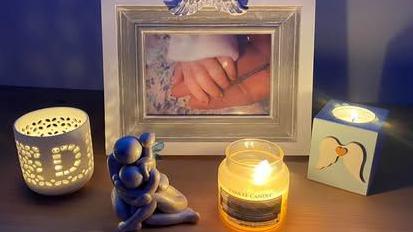
Elen Hughes lost her son Danial 37-and-a-half weeks into her pregnancy
Dr Ranee Thakar, president of the Royal College of Obstetricians and Gynaecologists said she was "very alarmed" by " the NPCC guidance.
She added: "Women in these circumstances have a right to compassionate care and to have their dignity and privacy respected, not to have their homes, phones, computers and health apps searched, or be arrested and interrogated."
The British Pregnancy Advisory Service, which provides abortions, added it was "harrowing" to see such guidance "in black and white".
Katie Saxon, its chief strategic communications officer, said the guidance allowed police to "use women's period trackers and medical records against them" and was the "clearest sign yet that women cannot rely on the police, the Crown Prosecution Service, or the courts to protect them".
The Women's Equality Network Wales said women "should not fear criminal investigations into already difficult and highly personal choices and circumstances around pregnancy".
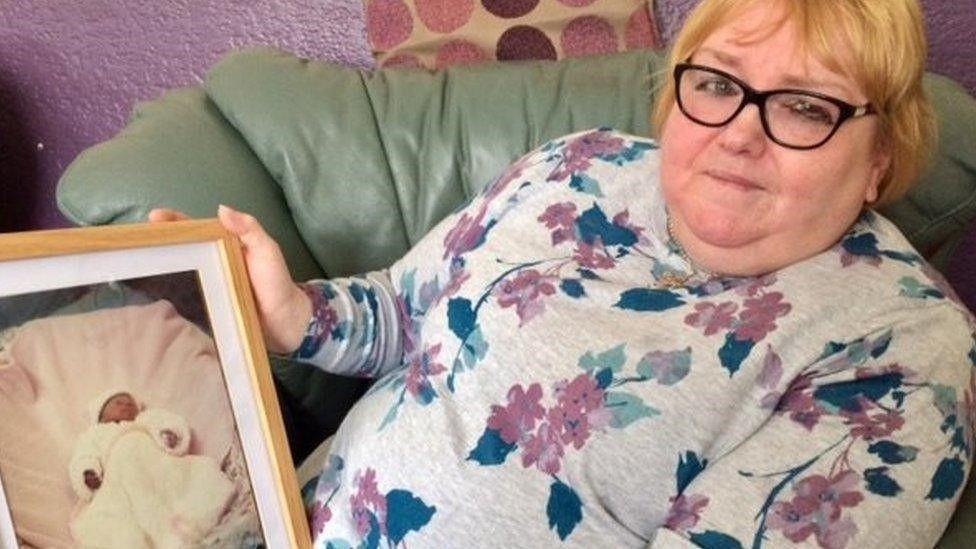
Llinos Eames Jones lost baby Mari Lois to complications during pregnancy in 2000
NPCC emphasised the legislation was complex and varied across the UK and only in cases where someone had told the police there was a suspicion of a crime would there be an investigation.
It added police officers were encouraged to prioritise the physical, emotional and psychological needs of the mother over the need to investigate.
Wales' four police forces each confirmed there had been no investigations of this nature in their areas since the new guidance was introduced.
Related topics
- Published14 May
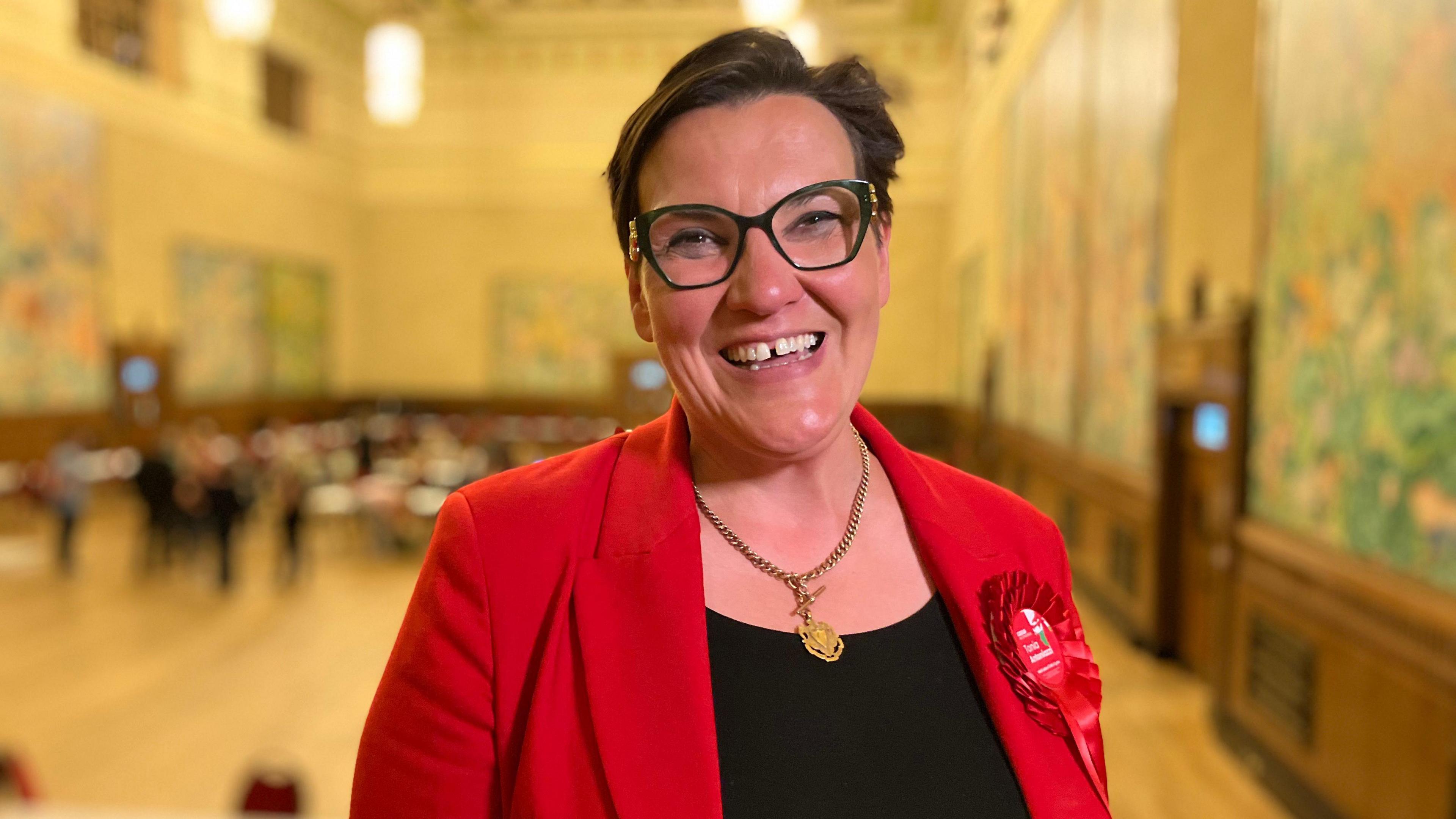
- Published8 May
- Published17 April 2018
